French welfare changes spark debate over 'universality'
- Published
Benoit Prunel said he did not mind paying more into the system
A central principle of western Europe's post-war welfare system comes up for debate in the French parliament this week.
Its technical name is universality. In practice it means everyone getting the same state benefits.
Now for the first time in 70 years this founding idea is in jeopardy in France.
The Socialist government, which one might expect to be firmly wedded to "universality", has decided it is a luxury France can no longer afford.
Historic aim
In its social security bill for 2015, it proposes that child benefits no longer be paid out in equal measure to everyone.
Instead the better-off will see their allowances cut, in some cases by as much as three-quarters.
.jpg)
Better-off citizens such as the Benoit family could see their allowances cut substantially
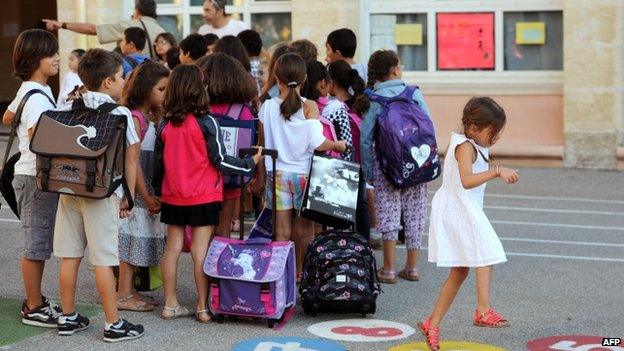
Some say because all children are equal in the eyes of the state their parents should be entitled to equal benefits
Child allowances are generous in France. A family with three children receives nearly 300 euros every month.
The historic aim was to encourage child-bearing and build up the nation. It was a goal on which both right and left could agree and politics was left out of the debate.
Now, though, the Socialists find themselves under attack from both sides - from the right for undermining family policy, from the left for tinkering with the "etat providence" or welfare state.
'Fundamentally unfair'
Relatively high-earners like environmental consultant Benoit Prunel, who has four young children, stand to lose most from the changes. But for him, money is not the real issue.
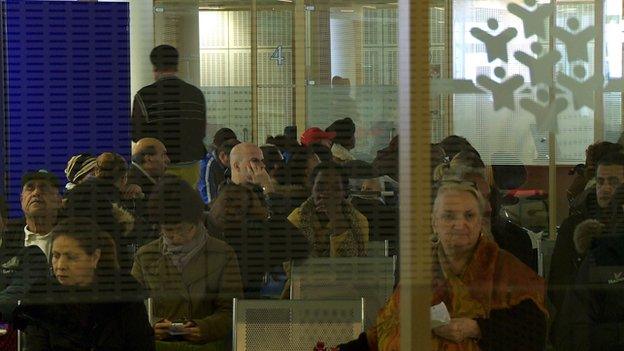
The universality of benefit payments in France could now be changed for the first time in 70 years
"What annoys me is that the Socialists are deliberately mixing up social policy with child policy. France's child policy was never about redistribution of wealth," he says.
"The allowances are for the children, and all children are the same in the eyes of the state, so they should all get the same.
"It is also fundamentally unfair because as someone with a decent income, I am already contributing more than most because I pay higher taxes and social charges.
"That is absolutely fine, and part of the system. But the deal was always that in return I would draw out of the system the same, universal benefits. Now I shall be paying twice over."
'Indecent'
For Benoit Prunel, it is France's "social contract" - the understanding that links rich and poor, old and young - that is in danger because of the planned change.
That critique is shared by many from the political left, who see the end of universal child benefits as a worrying precedent.
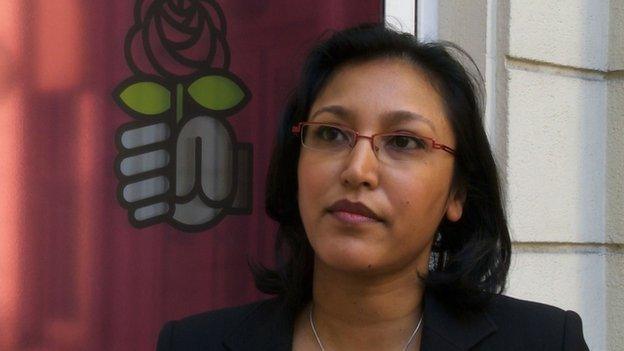
Corinne Narassiguin says that some families will have to bear a small sacrifice so the system as a whole can survive
According to Thierry Lepaon, head of the CGT trade union, the government is too scared to reform the tax system, so instead it is "playing around" with benefits.
"But it is indecent," he says, "because they are pitting one part of French society against another, rich against poor. It is against the very spirit of social security."
For the left, universal benefits are vital because they tie the better-off into the welfare system. If the rich feel unfairly treated, the risk is that they will start looking elsewhere - such as the private sector - for insurance and protection.
Instinctively the Socialist government agrees with this thesis. Its problem is that it has also got to bring down the budget deficit. Something had to give.
"We believe we are retaining the principle of universality, because everyone will still get some benefit - just a little bit less if you are among the 12% of richest families," says Socialist Party spokeswoman Corinne Narassiguin.
"It is the idea of uniformity of payment that has to go, unfortunately, but that is because we need to bring down the deficit. We are asking some families to bear a small sacrifice so the system as a whole can survive."
It is a debate that is not confined to France. In all western European countries, universal benefits were a founding principle of the post-war settlement.
It is a symbolically charged moment when this principle is abandoned - most of all when a left-wing government is in charge.
- Published10 November 2014

- Published15 October 2014
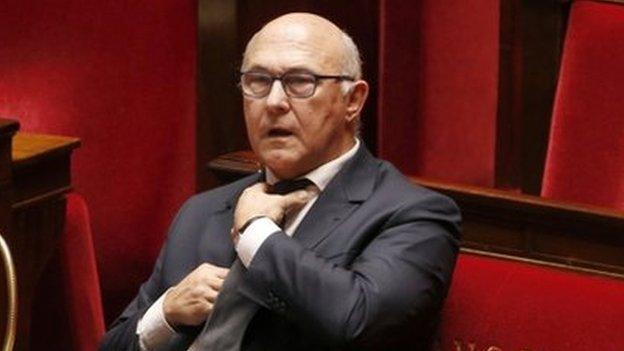
- Published29 August 2014
- Published3 November 2014

- Published5 November 2014
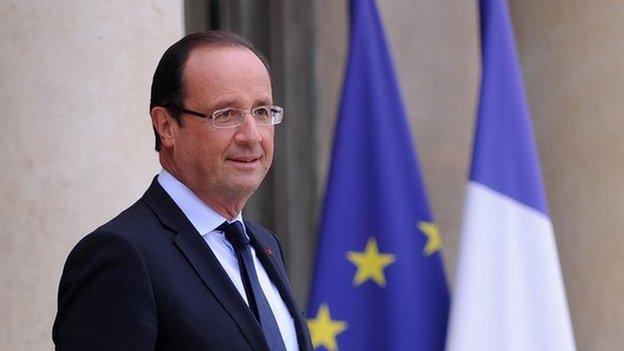
- Published28 October 2014
